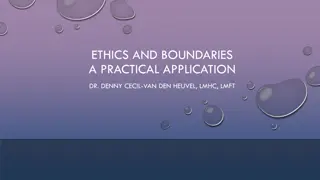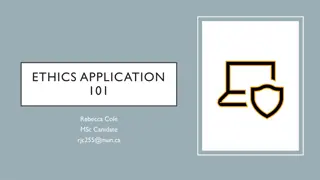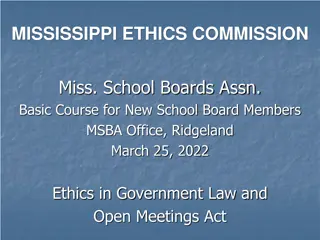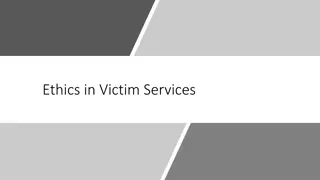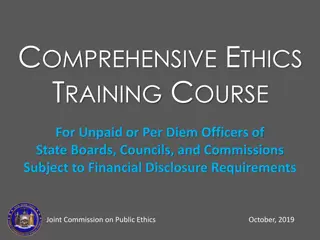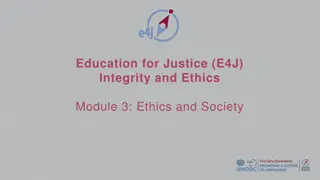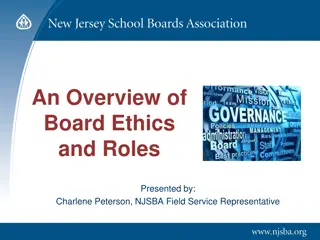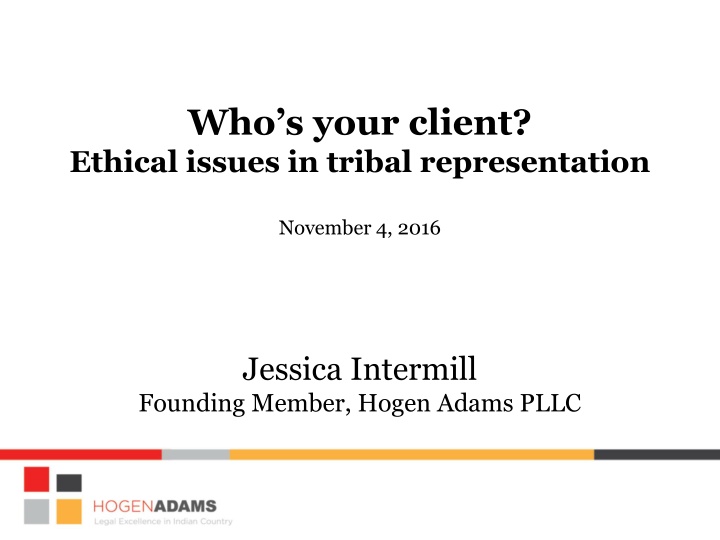
Ethical Issues in Tribal Representation: Who is Your Client?
Explore the complexities of tribal representation, delving into the ethical considerations surrounding determining the client in legal matters involving tribal councils, departments, members, and the general council. Understand the importance of the client-lawyer relationship and the implications on diligence, communication, confidentiality, and conflicts. Navigate through the intricacies of representing organizations and governmental entities in the legal landscape.
Download Presentation

Please find below an Image/Link to download the presentation.
The content on the website is provided AS IS for your information and personal use only. It may not be sold, licensed, or shared on other websites without obtaining consent from the author. If you encounter any issues during the download, it is possible that the publisher has removed the file from their server.
You are allowed to download the files provided on this website for personal or commercial use, subject to the condition that they are used lawfully. All files are the property of their respective owners.
The content on the website is provided AS IS for your information and personal use only. It may not be sold, licensed, or shared on other websites without obtaining consent from the author.
E N D
Presentation Transcript
Whos your client? Ethical issues in tribal representation November 4, 2016 Jessica Intermill Founding Member, Hogen Adams PLLC
Philip H. Tinker Kanji & Katzen PLLC Jessie Seim Prairie Island Indian Community Hon. Jeremy A. Brave-Heart Klamath Tribes
Who is your client? Is it the tribal council? Is it a tribal department or agency? Is it tribal members? Is it the general council? Is it the whole tribe, including its agencies and departments?
Why does it matter? Minn. and Model Rules 1.1 1.18 are all about the client-lawyer relationship: Diligence Communication Confidentiality Conflicts
Who is your client? Minn. Rules of Prof. Conduct: client not defined Model Rules of Prof. Conduct: ditto
Minn. & Model Rules 1.13(a) A lawyer employed or retained by an organization represents the organization through its duly authorized constituents.
Minn. Rule 1.13 Comment 1 An organizational client is a legal entity, but it cannot act except through its officers, directors, employees, shareholders and other constituents. Officers, directors, employees, and shareholders are the constituents of the corporate organizational client.
Minn. Rule 1.13 Comment 2 This does not mean, however, that constituents of an organizational client are the clients of the lawyer.
Minn. Rule 1.13 Comment 8 The duty defined in this rule applies to governmental organizations. Defining precisely the identity of the client and prescribing the resulting obligations of such lawyers may be more difficult in the government context and is a matter beyond the scope of these rules.
Minn. Rule 1.13 Comment 8 (cont.) Although in some circumstances the client may be a specific agency, it may also be a branch of government, such as the executive branch, or the government as a whole.
Whos your client? Is it the tribal council? Is it a tribal department or agency? Is it tribal members? Is it the general council? Is it the whole tribe, including its agencies and departments?
Minn. & Model Rules 1.13(a) A lawyer employed or retained by an organization represents the organization through its duly authorized constituents.
Whos your client? Ethical issues in tribal representation November 4, 2016 Jessica Intermill Founding Member, Hogen Adams PLLC jintermill@hogenadams.com 651-842-9104

